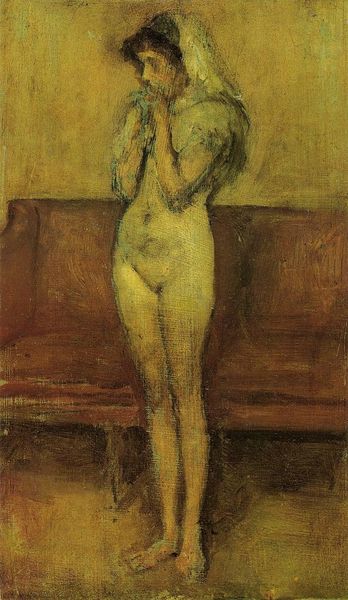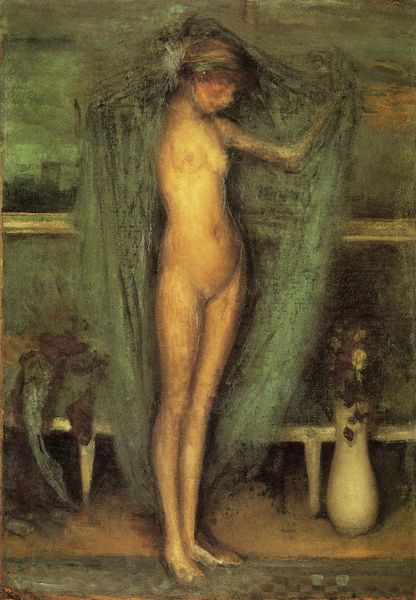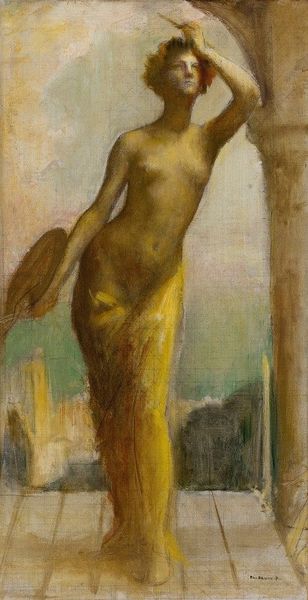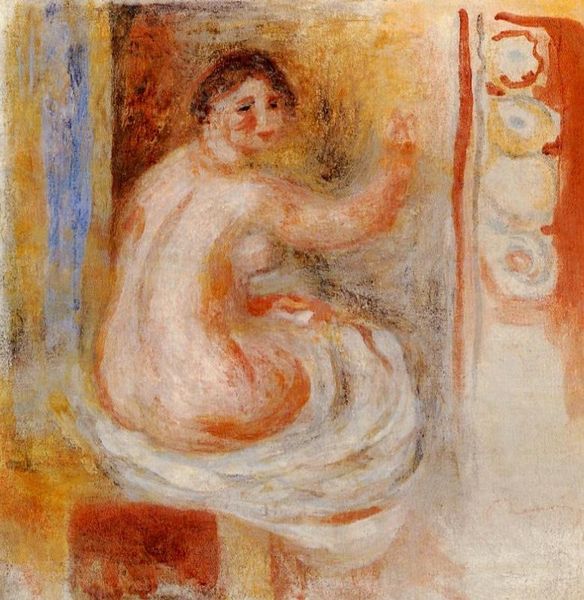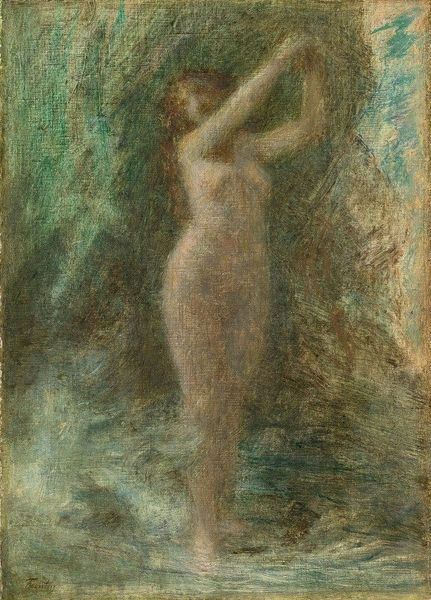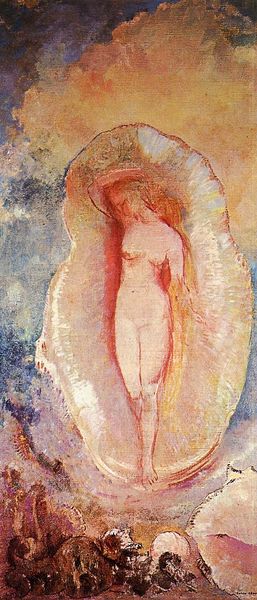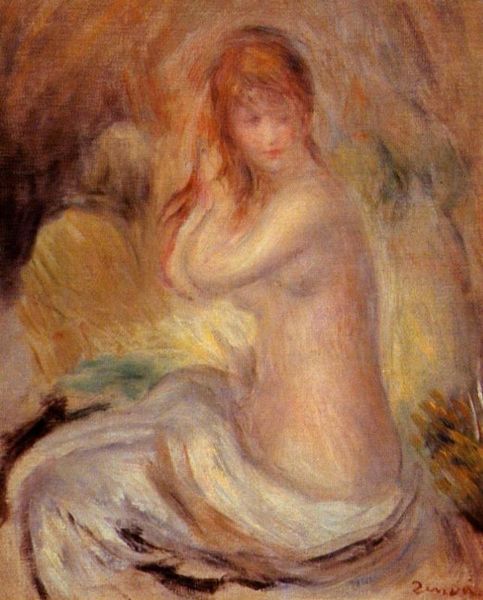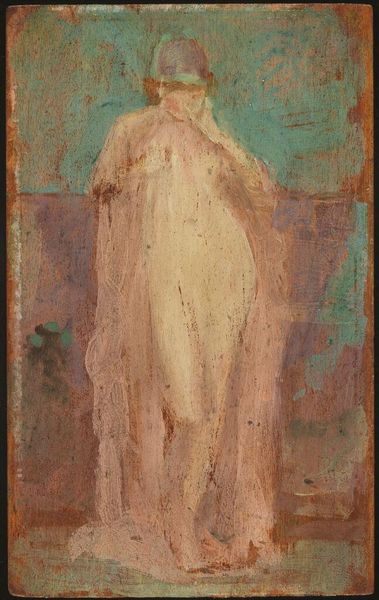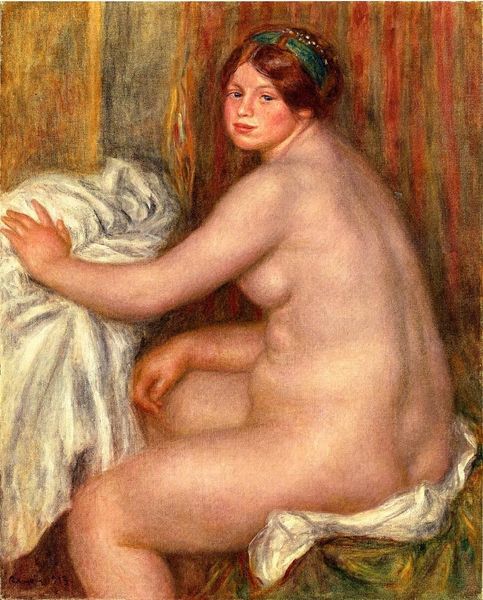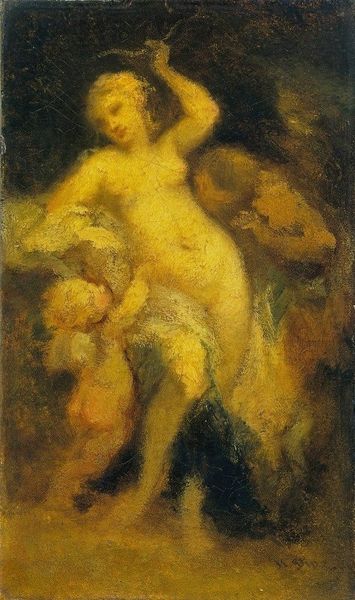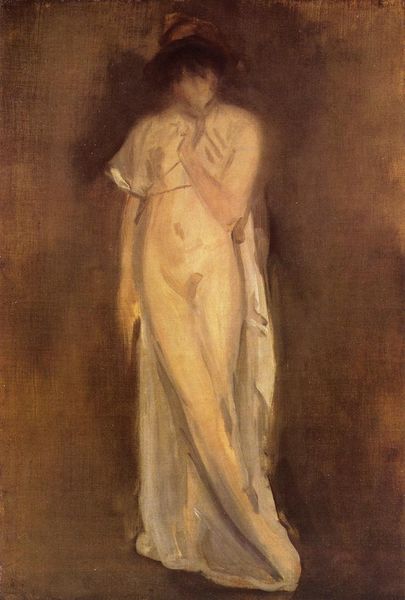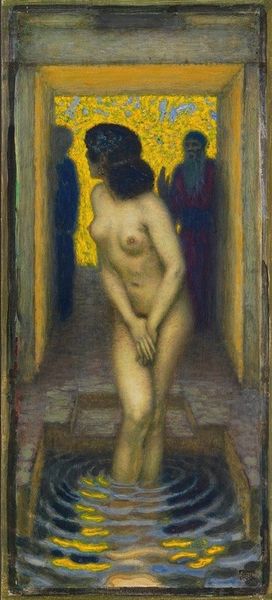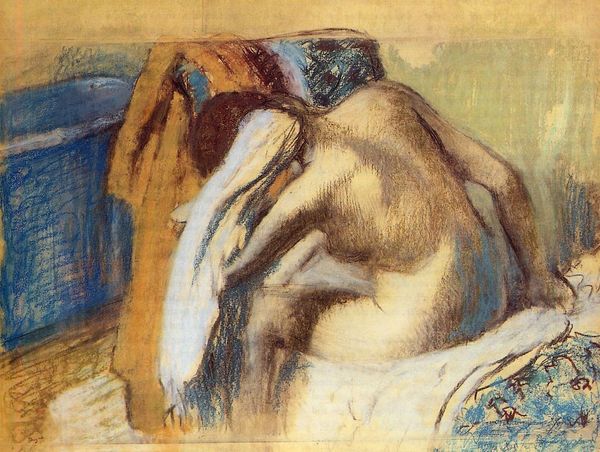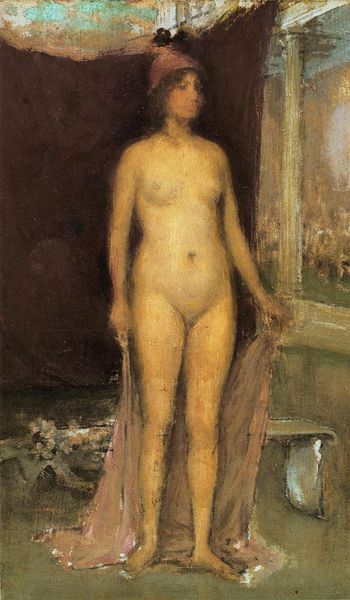
Copyright: Public domain
Pierre-Auguste Renoir rendered this "Study of a Woman, for Oedipus" with oil on canvas. At the base of the composition, observe the theatrical mask. In ancient Greek drama, masks were pivotal. Beyond amplifying voices in vast amphitheaters, they transcended mere utility, embodying archetypes of human experience and emotion. Consider the mask's presence here. It is not just a relic of theatrical practice but a potent symbol echoing through time. We see its echoes in commedia dell'arte, where stock characters wear distinct masks, each representing a facet of human folly. The mask as a motif has evolved. From ritualistic object to theatrical prop, to emblem of deception or hidden identity, it resurfaces, laden with shifting cultural weight. Think of tribal rituals, or the masked balls of the Renaissance, each using the mask to blur lines between reality and illusion. Its cyclical reappearance underscores our collective fascination with the interplay of appearance and essence.
Comments
No comments
Be the first to comment and join the conversation on the ultimate creative platform.
